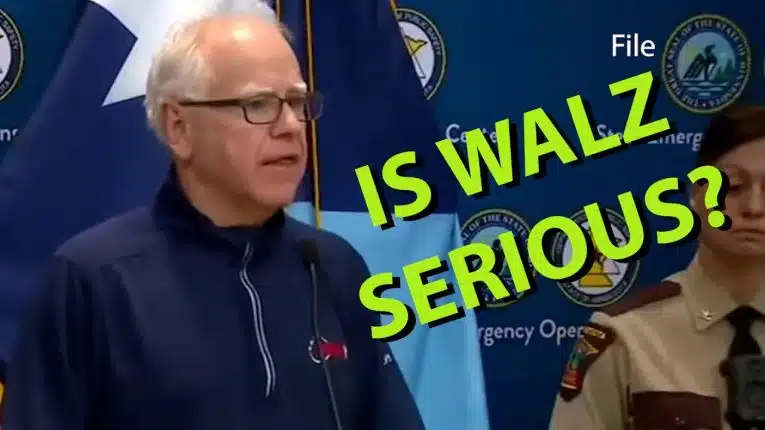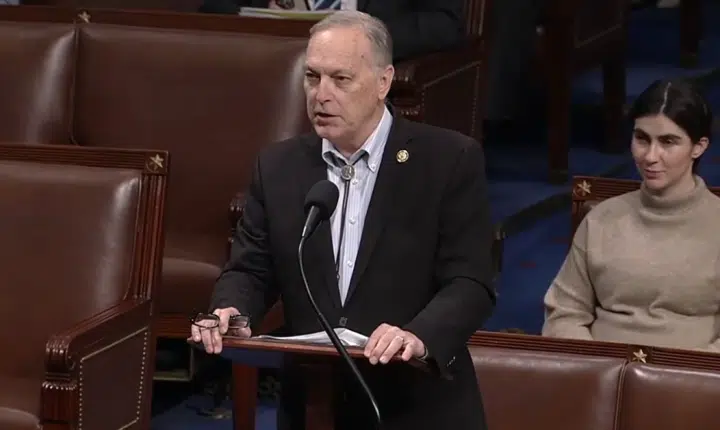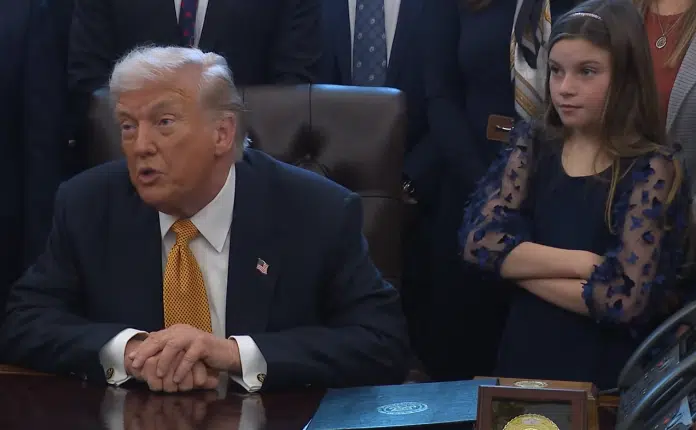By Rebekah Rast — Earth Day is every day under the Obama administration — with an overgrown U.S. Forest Service and an overzealous Environmental Protection Agency (EPA). Here’s a list of the top 10 earth-related snafus — in no particular order — from the view of Americans for Limited Government (ALG):
1. Coal
We’ll start with this current administration’s war on coal — one of the main sources of electricity here in the U.S. Unfortunately, this industry now faces huge burdens and regulations from the EPA. Some of these new rules include capping carbon emissions on power plants, and forcing them to employ prohibitively expensive technology to capture the emissions. Another rule, which seems to attempt to edge out the coal industry from America, forces mountain top mining to adhere to near-impossible rules set by the Clean Water Act. With 45 percent of the U.S. dependent on electric energy from coal perhaps the Obama administration should listen to his speeches where he declares support for an all-of-the-above energy strategy rather than continuing to pursue its war on coal.
2. Oceans and Great Lakes
President Obama is moving full-speed ahead on his Executive Order “Stewardship of the Ocean, Our Coasts, and the Great Lakes,” which he put into order on July 19, 2010. The White House claims this Executive Order, “strengthens ocean governance and coordination, establishes guiding principles for ocean management, and adopts a flexible framework for effective coastal and marine spatial planning to address conservation, economic activity, user conflict, and sustainable use of the ocean, our coasts and the Great Lakes.” But the truth is this is nothing more than an absurd power grab by the Obama administration. To control the country’s lakes, oceans and coastlands by issuing strict usage regulations and restrictions will only hurt such livelihoods as farming, fishing and logging.
3. Volt
The infamous Chevy Volt — known to catch fire, yet comes with a tax credit, so it’s OK right? Well, sure, if you don’t mind waiting about 27 years for the hybrid vehicle to finally pay for itself. From the New York Times, “The Volt, which cost nearly $40,000 before a $7,500 federal tax credit, could take up to 27 years to pay off.” No wonder sales on this once-touted, and taxpayer-supported, vehicle of the future have stalled.
4. Solyndra
This is an example of one of many bad investments made by this administration that went belly up. After receiving a $535 million U.S. taxpayer loan, California-based solar panel company Solyndra went bankrupt — taking all of that $535 million with it. But don’t worry, those employees of Solyndra were taken care of again by taxpayers — receiving another $13,000 each beyond their unemployment benefits through the Trade Adjustment Authority provisions. You can thank the U.S. Labor Department for that last handout.
5. Central Valley, Calif.
Also known as the salad bowl of the nation. Agricultural production in the area accounts for $26 billion in total sales and 38 percent of the Valley’s labor force. Farmers grow more than half the nation’s vegetables, fruits and nuts. But in order for these products to grow, the Central Valley needs water — and the past few years the government has been withholding that vital resource. The reason: to protect a three-inch fish called the delta smelt and other salmon species. Meanwhile, since farmers don’t know one year to the next how much water they will receive, they must make the difficult decision of what to plant and what once-productive farmlands to leave fallow. This does nothing but leave this region with some of the highest unemployment in the nation, destroying livelihoods and families. Ironically, there is no evidence that depriving water to the farmers actually does anything to save the fish.
6. Logging industry/barred owls
Who would have thought a breed of owl could downsize the entire logging industry in the northwestern part of the U.S.? Well, it has, with the help of the government of course. The Northern spotted owl was once thought to only be able to survive in old forests, overgrown and unmaintained. So when it became an endangered species in 1990, and even before, great cutbacks were made in the logging industry throughout California, Oregon and Washington states. Ironically, the Obama administration recently admitted that the owl still hasn’t made a comeback and so has decided to kill the more dominant owl species, the barred owl, in hopes of rejuvenating the spotted owl’s population. But in the midst of all this, the livelihoods of those people and communities that depended on the timber industry were crushed under the government’s heavy environmental hand.
7. Tombstone, Ariz.
“The Town Too Tough To Die” is in a heated duel with the U.S. Forest Service. In 2011, the Monument Fire ripped through the Huachuca Mountains in Arizona — land belonging to the U.S. Forest Service. Following the fire, floods and torrential mudslides destroyed mountain spring water lines to the town of Tombstone. Approximately one year later, Tombstone is still unable to fix its water lines, affecting 1,500 residents and more than 400,000 annual visitors. Due to the location of the springs being on a government wild land area, Tombstone residents cannot use the heavy machinery necessary to fix its water supply—Forest Service rules won’t allow it. Never mind that a significant level of arsenic, an element heavily regulated by the EPA due to health risks, is seeping into their water lines poisoning the residents. So far all the residents of Tombstone have been able to do is file a lawsuit against the Forest Service.
8. Keystone XL pipeline
Remember this statement by Obama after he rejected the Keystone pipeline: “This announcement is not a judgment on the merits of the pipeline, but the arbitrary nature of a deadline that prevented the State Department from gathering the information necessary to approve the project and protect the American people.” Though this administration had plenty of time for reviewing the pipeline, after all, it was not a new idea, they still rejected it. In fact, the State Department stated the pipeline would likely create about 6,000 jobs, which some say is a relatively low estimate. You’re right, Mr. President, one more pipeline on top of the nearly 2 million we already have in the U.S. safely delivering natural gas and petroleum every year, would have been one too many.
9. Oil
About a year ago, President Obama said, “We have less than 2 percent of the world’s oil reserves. We’re running out of places to drill. We’re running out of oil. We need to end our $4 billion in annual taxpayer subsidies to oil companies. We need to invest in clean, renewable energy.” What he really meant: “We are running out of places where I will allow drilling.” Oil production in the Gulf of Mexico continues to drop despite the president promising new permits. He rejected the Keystone pipeline and won’t advance oil production in Alaska. In fact, while oil and gas production has increased dramatically on non-federal government controlled lands, it has dropped in those areas controlled by the Obama Administration. The oil and gas industry in the U.S. support 9.2 million jobs and generates federal revenues. Sounds like an industry that needs to grow rather than be slowly wiped out.
10. Renewable energy
Solar, wind and biofuel are all critical to Obama’s energy policy. About 8 percent of all energy consumed in the United States in 2010 was from renewable sources, and they account for about 10 percent of the nation’s total electricity production. In 2009, Obama’s stimulus package included about $100 billion to invest in green energy. And ever since, all forms of renewable energy still need taxpayer funds to stay afloat. Investing in tomorrow’s energy hasn’t been a smooth process; the sun doesn’t always shine and the wind doesn’t always blow. Unfortunately taxpayers are paying for these many “green” blunders. However, if no renewals of subsidies are given to these industries they will begin to phase out until the markets and consumers begin to demand them.
There you have it; ALG’s list of top 10 earth-related faux pas committed by the EPA, U.S. Forest Service and many other overreaching government agencies and programs. Happy Earth Day!
Rebekah Rast is a contributing editor to Americans for Limited Government (ALG) and NetRightDaily.com. You can follow her on twitter at @RebekahRast.







